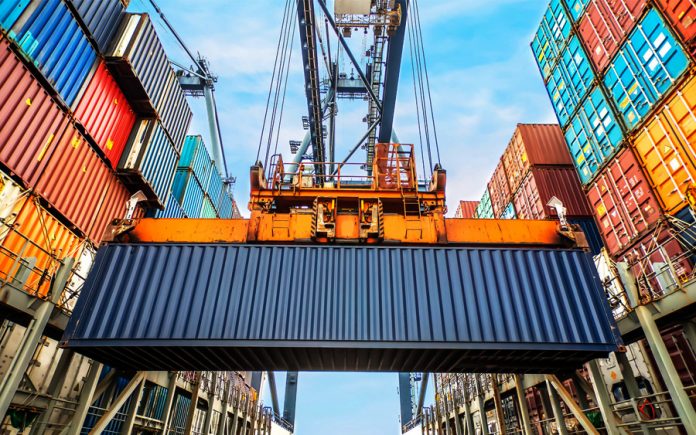By Veton Surroi
I am not sure I fully understand the exact meaning of the word “kinezëri” (“Chineseness”) as it is used in Albania. Sometimes it seems to me that the word stems from the first contacts that Albanian citizens had with the Chinese, during the time of the Enver-Mao political love affair, when, upon hearing their language, “kinezëri” turned into a synonym for incomprehensibility.
In this sense, “kinezëri” would have the same usage in Albanian as exists in English with “it’s all Greek to me” or in German “Das kommt mir Spanisch vor” (“that seems Spanish to me”)—in other words, speaking “Chinese” to an Albanian is like speaking Greek to an American or Spanish to a German: an incomprehensible or unintelligible speech.
Then again, it also seems to be used to describe the phenomenon of cheap and not very high-quality Chinese products, perhaps even for copies of Western-designed goods. “Kinezëri” in that sense would be a synonym for something worthless or of dubious value.
I was thinking about this term over the past two days while watching how, on two sides of the world, two gatherings were held that were described as “strategic.” In one, at the opening panel of the Bled Strategic Forum in Slovenia, the discussion was about the EU’s enlargement with new candidates from the Western Balkans. In the other, at the Shanghai Cooperation Organization (SCO), the discussion was about the expansion of a new world order that would bypass the United States and perhaps even what is called the “collective West.”
And I am absolutely sure that the word “kinezëri”, as far as I can understand it, cannot describe the meeting held in China, in Tianjin.
On the same day that in Bled, for the twentieth year in a row, the need for the EU to expand with new members from the Western Balkans was discussed, in Tianjin the need for expanding a new development credit system with the SCO Bank was discussed—China immediately put more than one billion dollars at its disposal.
On the same day that in Bled the membership candidates swear they want membership or entertain the public by promising that, as members, they will make the EU more amusing—while leaders of member states openly admit that there is little enthusiasm for new members—in Tianjin the issue of membership is not even on the agenda: whoever wants to join is welcome, the door is open.
On the same day, the Croatian Prime Minister broke the joke-filled atmosphere by saying: “You have North Macedonia blocked, Serbia under more than two years of unrest and the largest, strongest, and most serious internal demonstrations on the brink of civil war. Bosnia-Herzegovina with Dodik dragging on for years whether to split or not, hopefully leaving. This is where we are today with Banjska, which in 2023 was left without a serious remark or articulation by anyone in the European Union—we pretended it didn’t happen. These are the realities of where we are.”
On that very same day in Tianjin, Indian Prime Minister Modi shook hands with his host Xi Jinping—even though their countries had exchanged military strikes along their contested border, and India and Pakistan had exchanged artillery fire that year, with Pakistan bombing India using Chinese-bought planes. On that same day were also present the leaders of Thailand and Cambodia, two countries that only weeks earlier had exchanged fire along their border.
On the same day that in Bled, for the twentieth year in a row, it was discussed how the EU should have a geopolitical role—discussed, in fact, in a panel about the Western Balkans, where EU policy can only be seen as successful if one freely uses the literary creativity of magical realism—in Tianjin were present the leaders of ten founding countries, two observer states, and 13 partner states—countries that represent more than half of the world’s population.
And, on the same day that in Bled it was said that the war in Ukraine has caused the EU to take the integration of Western Balkan states (along with Ukraine and Moldova) into the EU more seriously, in Tianjin decisions were being made as a result of a new world order born out of the war in Ukraine. For a sober leader in Bled, the reasonable logical question is: how can Ukraine and Moldova be integrated into the EU while they are hotspots of Russian military activity? For the sober leaders in Tianjin, the handshake between Xi Jinping, Putin, and Modi was a sign that the war in Ukraine will not end with an initiative by President Trump, that US sanctions against India will not push it away from Russia and China (that is, from BRICS), and that these are the new realities.
Over the twenty years of the Bled Strategic Forum and the debate on how the EU should have a geopolitical role, China has invested in strategic sectors that have made it a global power. Today, China builds half of the commercial ships in the world, produces 80 percent of the world’s solar panels, 60 percent of electric cars, and so on.
In Bled, it was announced that perhaps by the next Forum, two amusing Western Balkan countries might be closer to the EU. In Tianjin, the warning about the next step was kept hidden: the introduction of the Chinese currency, whether conventional or electronic, into a payment system within the SCO or BRICS that would compete with the US dollar. This would be the logical next step in dismantling the existing international system, built with US initiative from 1945 until today. Such a move is more frightening for the US—whose superpower role has been based also on the dollar as the global exchange currency—than any conventional war that might be fought.
At the two gatherings, on the same day, Europeans might as well adopt the term “kinezëri” for themselves.
/koha.net
By Veton Surroi



